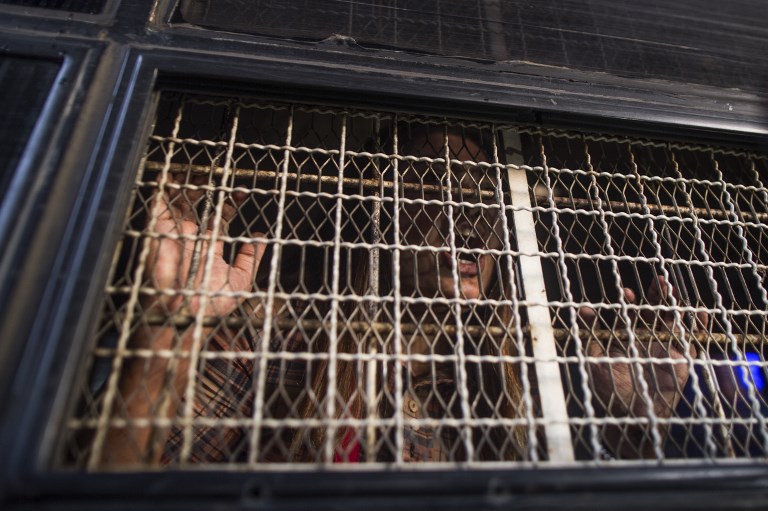While journalists, press freedom advocates and international human rights organizations celebrated the release of Reuters journalists Wa Lone and Kyaw Soe Oo yesterday, many continued to speak out against the 300 other political prisoners who continue to be imprisoned for speaking out against the government.
In addition to the two journalists, President U Win Myint freed some 6,500 prisoners on Tuesday, most of whom had been serving sentences for drug offenses. Only 20 of those freed were among the country’s many political prisoners, according to a list put together by the Assistance Association of Political Prisoners, a Thailand based human rights NGO that advocates and lobbies for the release of remaining political prisoners in Myanmar.
Notable among those remaining in prison are former child soldier Aung Ko Htwe, author and former lawmaker Dr. Aye Maung, political activist and author Wai Hin Naung, and political activist and Movement of Democracy Current Forces (MDCF) founder Ko Htin Kyaw.
Aung Ko Htwe was abducted in 2005 at the age of 14 in Yangon’s central railway station and forced into military service. Two years later, he escaped with two others who robbed a motorbike owner. One of the three reportedly choked the owner to death, though Aung Ko Htwe later said he was not involved.
Aung Ko Htwe was nonetheless charged with the murder, convicted and sentenced to death, His sentence was commuted to life in prison in 2013 but authorities decided to release him in July 2017 after he had spent 10 years in jail. However, he was charged and imprisoned again for recounting his experience of forced service and abuse by authorities in an interview with Radio Free Asia.
Dr. Aye Maung and Wai Hin Naung were both sentenced to 20 years in prison on treason charges earlier in March after they both gave speeches criticizing the NLD government. Their case has since become a flashpoint between Arakan Army and the Tatmadaw, who have routinely clashed since January, displacing thousands and claiming dozens of lives.
Ko Htin Kyaw, a longtime political activist in Myanmar who found his footing opposing fuel hikes leading up to the Saffron Revolution, was jailed just minutes after calling for the arrest of Myanmar’s ‘murderous generals’ and welcoming UN and ICC investigations into crimes against humanity in August. He has long called for the end of the military’s outsized role in Myanmar’s politics and remains one of the few voices that continue to call for full democracy in Myanmar.
According to a Human Rights Watch report in February, the state of free speech and freedom of press in Myanmar has not only failed to improve but backslid through the abuse of “broad and vaguely worded laws” by government officials.
Since the NLD assumed power in 2015, at least 43 journalists have been arrested according to Athan, a local freedom of speech of organization. Moreover, a report by Free Expression Myanmar says that between 2015 and 2017, NLD members have filed more criminal complaints against citizens using these laws than members of all other political parties combined.
The welcome news of the release of the two Pulitzer Prize-winning journalists is but a small step in the long road to recovery for Myanmar’s badly damaged state of free speech, according to Nicholas Besquelin, Amnesty International’s regional director for East Asia. A big step would be the repeal of “a range of repressive laws used to detain journalists, activists and any perceived critic of the authorities.”
“Until these laws are repealed, journalists and activists remain under a permanent threat of detention and arrest,” he said in a statement.





Reader Interactions